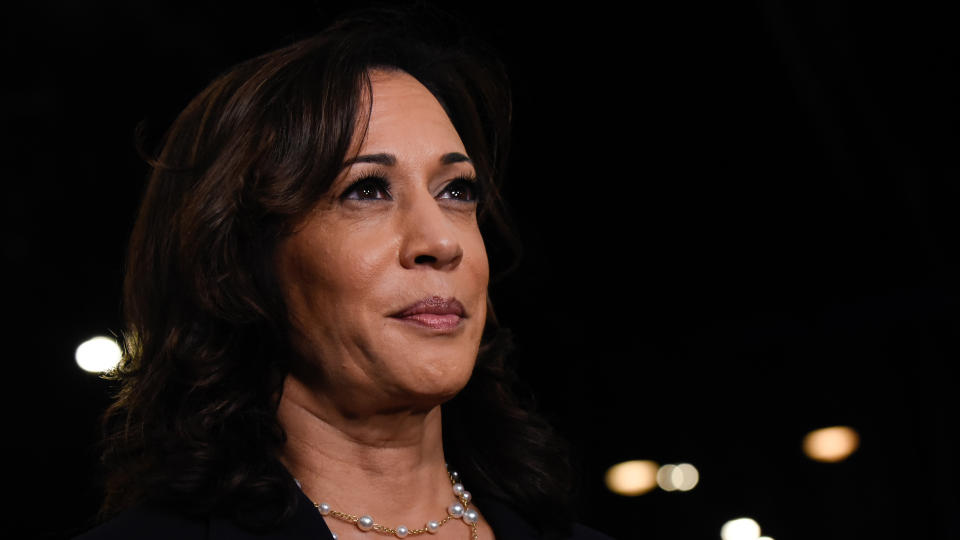6 Economic Policies Kamala Harris Supports and How They Will Impact Your Wallet

President Joe Biden endorsed Vice President Kamala Harris to replace him on the Democratic ticket after withdrawing from the reelection campaign. Harris must now earn the Democratic nomination despite speculation about other possible Biden successors, which has left voters wondering where she stands on economic issues.
Check Out: How Rich Is Former President Donald Trump?
Read Next: 5 Subtly Genius Things All Wealthy People Do With Their Money
“Harris will need to distinguish her own economic policies to set her apart from those of the Biden administration,” said Janie Mackenzie, a former Democratic operative. “While Harris will most likely follow Biden’s fiscal agenda somewhat closely, she can be expected to pursue a somewhat more progressive agenda.”
GOBanking Rates examined Harris’ record to uncover six policies that Kamala Harris supports and how they will impact your wallet.
Wealthy people know the best money secrets. Learn how to copy them.
Taxes
Harris has proposed multiple changes to the tax code, including raising taxes on high-income earners and providing refundable tax credits.
“I don’t think you will see Vice President Harris differ much from President Biden on tax policy,” said Bruce Thompson, a North Carolina attorney and political influencer. “He made the Trump tax cuts a centerpiece of the debate, and I expect she will continue to talk about that on the campaign trail.”
Specifically, Harris supported raising the marginal income tax rate to 39.6% for the top 1% of earners. She also recommended implementing a 4% “income-based premium” on households earning more than $100,000.
As a former U.S. Senator, Harris introduced legislation in 2018 that would have given a refundable tax credit of up to $6,000 per year for families earning under $100,000 and $3,000 for single filers earning under $50,000. The legislation did not become law.
Social Security
Harris has consistently expressed support for strengthening Social Security as a chief member of the Biden Administration.
For example, she backed Biden’s proposal to raise taxes on household incomes of $400,000 or more to expand Social Security coverage for older adults, people with disabilities, and low-income seniors.
In addition, Harris supported legislation introduced in the U.S. Senate last year that would have imposed a 12.4% tax on investment income for high-income earners to pay for increases in Social Security benefits by $2,400 annually for all recipients. The bill would have also eliminated wage caps subject to Social Security payroll taxes for incomes above $250,000.
Business Regulations
Harris supported increasing regulations on businesses, particularly those that amplify worker protections. For example, she favored legislation aiming to classify more workers as employees rather than independent contractors to provide protections and benefits.
She also espoused raising the corporate tax rate to from 21% to 35% and ending tax shelters for offshore corporate income.
“As we are likely to end up with a split Congress, it will be hard for whoever is elected President to push major tax changes on Capitol Hill,” Thompson said. “Instead, the major economic focus will be on trade policy, interest rates and inflation. I expect Vice President Harris will continue to address the issues consistent with what the administration is currently doing.”
Student Loan Debt
Harris changed her stance on student loan debt since becoming Vice President.
As a presidential candidate in 2020, Harris wanted to provide student loan forgiveness to Pell Grant recipients who started a business in a disadvantaged community and continued their business for at least three years to qualify for $20,000 in student loan relief.
However, as recently as April, Harris advocated for a Biden Administration proposal that would automatically cancel student loan debt for loans whose repayment plan started more than 20 years ago or are experiencing financial hardship.
Child Tax Credit
Harris supported the expansion of the Child Tax Credit (CTC) to give up to $3,600 per child under the age of 6 and $3,000 for children aged 6-17 in an effort to help reduce child poverty.
Green Energy Subsidies
Harris shares Biden’s view on increasing subsidies for green energy and clean energy initiatives. Her climate change plan includes extending and expanding renewable energy tax credits and eliminating tax breaks for the fossil fuel industry.
Republican Response
Political conservatives opposed Harris’ economic policies, saying they would harm economic growth and lead to higher federal deficits. Critics also said her economic approach would result in excess government spending, increased business taxes, and greater regulatory burdens, which could restrain economic innovation and job creation.
“This will hurt the economy and profits, making your 401(k) account and your IRA smaller,” said Ryan Ellis, president of the Center for a Free Economy. “It will make your kid’s 529 plan smaller. It will make every stock and mutual fund you own less valuable.”
Editor’s note on election coverage: GOBankingRates is nonpartisan and strives to cover all aspects of the economy objectively and present balanced reports on politically focused finance stories. You can find more coverage of this topic on GOBankingRates.com.
More From GOBankingRates
Here's the Salary Needed to Actually Take Home $100K in Every State
6 Things to Try This Week if You're Behind on Your Savings Goals
4 Reasons Retired Women Need More Money Than Men -- And What To Do About it
This article originally appeared on GOBankingRates.com: 6 Economic Policies Kamala Harris Supports and How They Will Impact Your Wallet

 Yahoo Finance
Yahoo Finance 